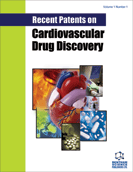Abstract
The heart is an aerobic organ, and most of the energy required for the contraction and maintenance of ion gradients comes from oxidative phosphorylation. Oxidative stress caused by free radicals plays a crucial role in the pathophysiology associated with atherosclerosis, neoplasia and neurodegenerative diseases. Therefore, a great deal of attention has focused on the naturally occurring antioxidant phytochemicals as potential therapy for cardiovascular diseases. One of the most recognized and widely studied compounds is resveratrol, a member of a family of polyphenols called viniferins. Although resveratrol was first isolated in 1940 from the roots of white hellebore (Veratrum grandiflorum), the importance of resveratrol was recognized only after the widely publicized historic “French Paradox” associated with drinking of red wine. Both epidemiological and experimental studies have revealed that drinking wine, particularly red wine, in moderation protects cardiovascular health; however, the experimental basis for such an action is not fully understood. A growing body of evidence supports the role of resveratrol as evidence based cardiovascular medicine. Resveratrol protects the cardiovascular system by multidimensional way. The most important point about resveratrol is that at a very low concentration, it inhibits apoptotic cell death, thereby providing protection from various diseases including myocardial ischemic reperfusion injury, atherosclerosis and ventricular arrhythmias. Both in acute and in chronic models, resveratrol-mediated cardioprotection is achieved through the preconditioning effect (the state-of-the-art technique of cardioprotection), rather than direct effect as found in conventional medicine. The same resveratrol when used in higher doses, it facilitates apoptotic cell death, and behaves as a chemo-preventive alternative. Resveratrol likely fulfills the definition of a pharmacological preconditioning compound and gives hope for the therapeutic promise of alternative medicine. The purpose of this review is to provide evidence in favor of resveratrol to be used as a preventive medicine and related patents for the maintenance of healthy heart.
Keywords: Resveratrol, polyphenolic antioxidant, phytoestrogen, cardioprotection, vasodilation, Anti-inflammatory effect, ROS scavenging
 4
4


